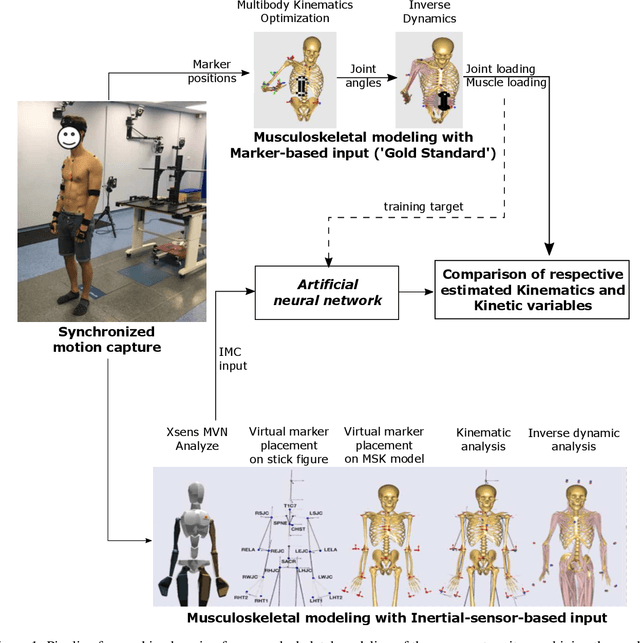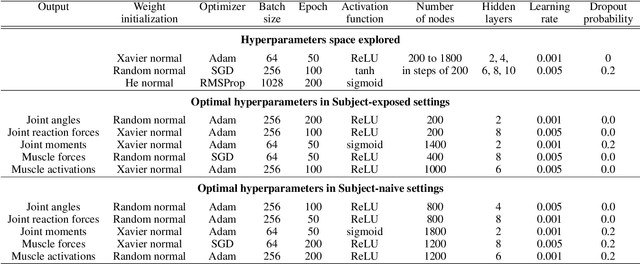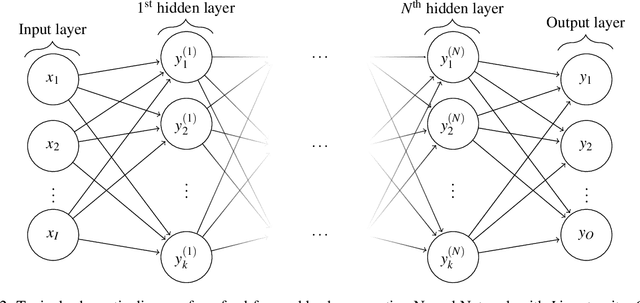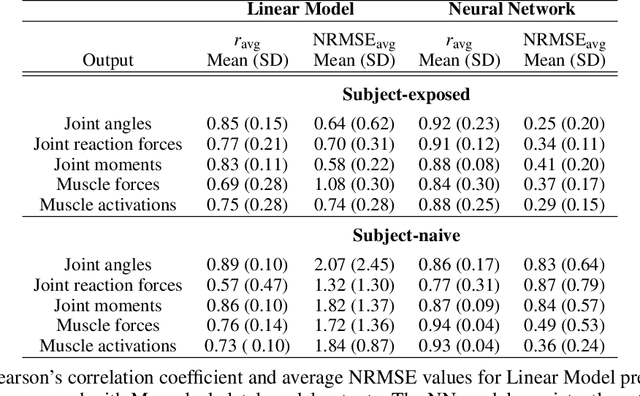Abhishek Dasgupta
Machine Learning for Optical Motion Capture-driven Musculoskeletal Modeling from Inertial Motion Capture Data
Sep 28, 2022



Abstract:Marker-based Optical Motion Capture (OMC) systems and the associated musculoskeletal (MSK) modeling predictions have offered the ability to gain insights into in vivo joint and muscle loading non-invasively as well as aid clinical decision-making. However, an OMC system is lab-based, expensive, and requires a line of sight. A widely used alternative is the Inertial Motion Capture (IMC) system, which is portable, user-friendly, and relatively low cost, although it is not as accurate as an OMC system. Irrespective of the choice of motion capture technique, one needs to use an MSK model to obtain the kinematic and kinetic outputs, which is a computationally expensive tool increasingly well approximated by machine learning (ML) methods. Here, we present an ML approach to map IMC data to the human upper-extremity MSK outputs computed from OMC input data. Essentially, we attempt to predict high-quality MSK outputs from the relatively easier-to-obtain IMC data. We use OMC and IMC data simultaneously collected for the same subjects to train an ML (feed-forward multi-layer perceptron) model that predicts OMC-based MSK outputs from IMC measurements. We demonstrate that our ML predictions have a high degree of agreement with the desired OMC-based MSK estimates. Thus, this approach will be instrumental in getting the technology from 'lab to field' where OMC-based systems are infeasible.
Anytime Inference in Valuation Algebras
May 13, 2016

Abstract:Anytime inference is inference performed incrementally, with the accuracy of the inference being controlled by a tunable parameter, usually time. Such anytime inference algorithms are also usually interruptible, gradually converging to the exact inference value until terminated. While anytime inference algorithms for specific domains like probability potentials exist in the literature, our objective in this article is to obtain an anytime inference algorithm which is sufficiently generic to cover a wide range of domains. For this we utilise the theory of generic inference as a basis for constructing an anytime inference algorithm, and in particular, extending work done on ordered valuation algebras. The novel contribution of this work is the construction of anytime algorithms in a generic framework, which automatically gives us instantiations in various useful domains. We also show how to apply this generic framework for anytime inference in semiring induced valuation algebras, an important subclass of valuation algebras, which includes instances like probability potentials, disjunctive normal forms and distributive lattices. Keywords: Approximation; Anytime algorithms; Resource-bounded computation; Generic inference; Valuation algebras; Local computation; Binary join trees.
 Add to Chrome
Add to Chrome Add to Firefox
Add to Firefox Add to Edge
Add to Edge